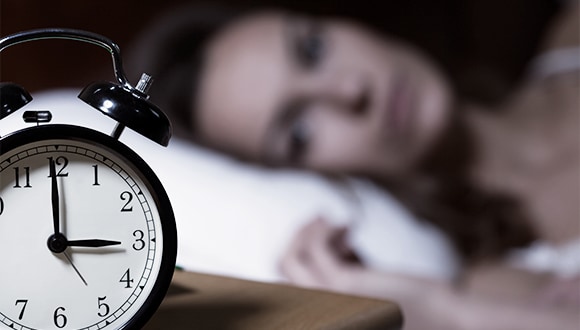Can’t sleep? Here’s how to know if it’s a problem
If you’re finding it hard to sleep on a regular basis, here’s what you need to know.
Shaney Hudson
August 2017
Sleep is critical to our health and wellbeing, but in today’s fast-paced world it’s more difficult than ever to get a good night’s sleep. In fact, a new study from The Sleep Foundation and The University of Adelaide found more than a third of all Australian adults are sleeping either poorly or not long enough most nights. These findings shine a light on one of Australia’s most common health issues: sleep deprivation.
The causes for sleep disruption and deprivation vary from person to person, but the most common triggers are sickness, stress, having kids, grief and old age.
Sometimes periods of sleep deprivation last for only a short time and are aided by temporary solutions. But sometimes they last for prolonged periods of time, which can be detrimental to your long-term health; increasing the chance of obesity, high blood pressure, diabetes, heart disease, stroke and anxiety.

Common sleep-related disorders
Two of the most common sleep disorders, which might be at play if you can’t sleep on a regular basis, are insomnia and sleep apnoea.
Insomnia occurs when you have difficulty falling asleep, staying asleep or find it hard to settle back to sleep once awake, leading to tiredness during the day.
Sleep apnoea is a serious condition where breathing stops, momentarily, during periods of sleep. Other common, but lesser known, sleep disorders include restless leg syndrome (movement of limbs, usually when trying to sleep), bruxism (grinding of teeth during sleep) and rapid eye movement behaviour disorder (where you move or talk during the REM stage of sleep).
The tipping point
While disruption to our sleep patterns is common and understandable, especially in times of stress, how do you know when lack of sleep becomes a more serious problem?
General and recognisable signs of poor sleep can include fatigue, irritability and lethargy. It can be hard to feel in control and motivation levels can be unusually low.
However, according to Professor Dorothy Bruck, chair of the Sleep Health Foundation, there are other more serious red flags and signs to watch for with sleep disruption that may indicate a problem. These include an unusual lapse in concentration or memory not experienced before, emotional instability and excessive daytime sleepiness over a period of a few weeks.
According to Sleep Therapy Australia, you may be affected by insomnia if you experience “difficulty initiating or maintaining sleep, or non-refreshing sleep, persisting for a period of at least one month”. You might also notice changes in mood and performance that can’t easily be attributed to another disorder, substance or any other medication you are taking.
Prof Bruck admits that the point when sleep deprivation becomes a serious sleep disorder can vary from person to person. “Some people are much better at tolerating disrupted sleep than others,” she says. “It’s really when it starts to affect your quality of life and you think it’s more than something transitory.”
Getting the right help
Despite the negative impact sleeplessness has on our health, research indicates there is reluctance amongst those experiencing sleep issues to seek professional help. While it’s common to write off lack of sleep as a nuisance problem, combating tiredness by reaching for cup of coffee or using sleeping pills isn’t a long-term solution. One 2016 study found that caffeine loses its effectiveness after three nights of disrupted sleep, while sleeping pills are only intended for short-term use.
Although there are some simplified sleep tests online, such as from The London Sleep Centre, it’s important to speak to a doctor to receive a personalised diagnosis and treatment plan.
Prof Bruck says it’s important to get help to break the cycle. Even if you’re unsure if you have a sleep disorder, it’s advisable to talk to your GP about what you’re experiencing to help them make the diagnosis.
Treatment options
One of the most effective treatments for insomnia is cognitive behaviour therapy (CBT), which involves addressing the psychological issues behind sleeplessness and then developing good sleep routines.
For sleep apnoea, diagnosis can involve a sleep study with a specialist. For severe sleep apnoea, oral sleep aids to assist breathing are often prescribed, as well as continuous positive airway pressure (CPAP) machines.
If you’re concerned you may have a sleep disorder, or are just wanting a better night’s sleep, the Sleep Health Foundation has fact sheets available online. However, accurate diagnosis is crucial and your GP can refer you to a sleep professional for treatment tailored to your situation.
Related articles
How to sleep better
Struggling to get enough good quality sleep? Here’s what you need to know.
4 fatigue fighters for sleepless nights
Feeling sluggish, sleepy or worn out from a bad night’s sleep? Revive your flagging energy with these instant pick-me-ups.
How to manage stress
Reclaim calm with these expert-approved approaches to dealing with stress and anxiety.
Finding your third space
Struggling to achieve work-life balance? The Third Space may be the answer.